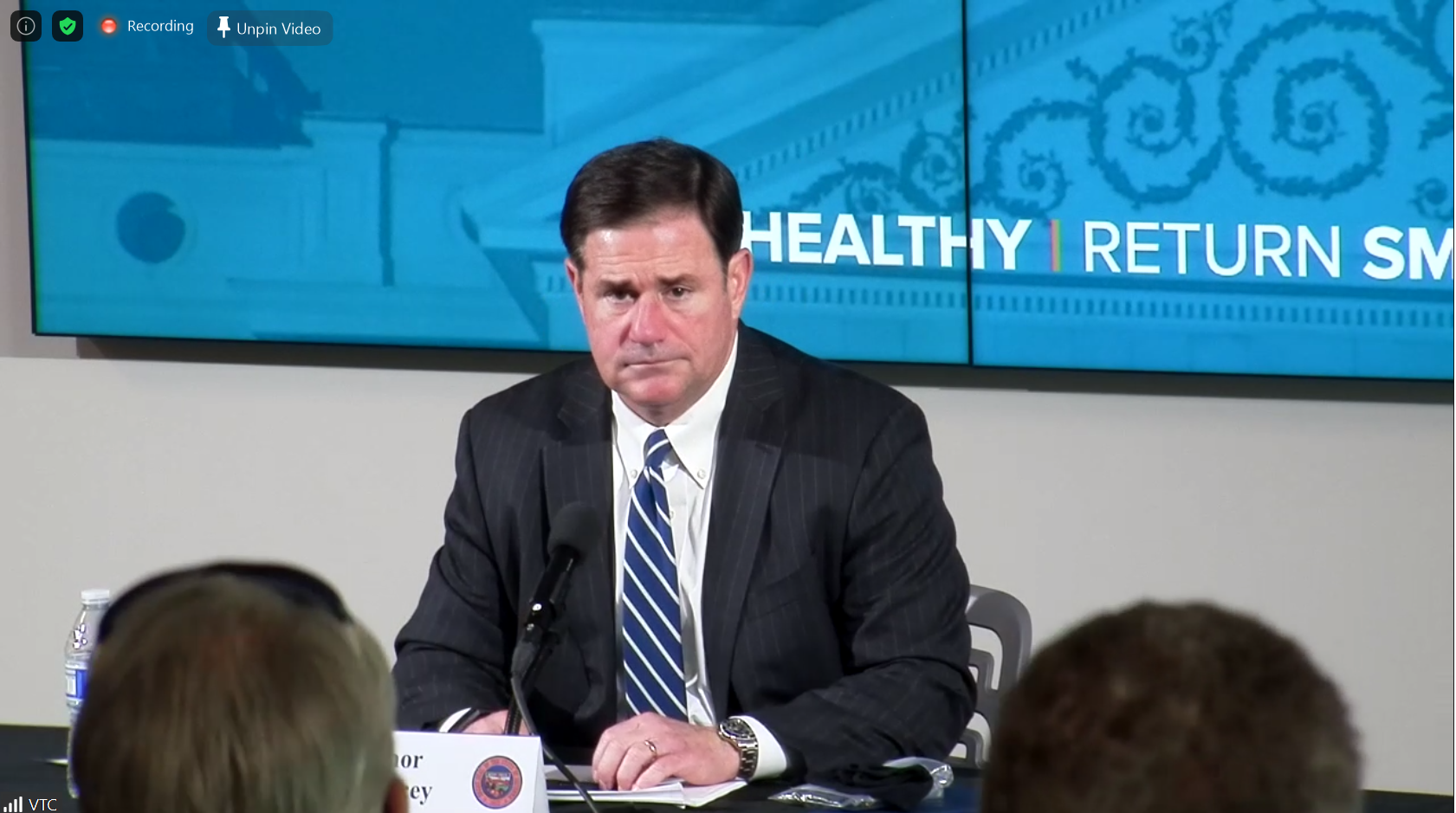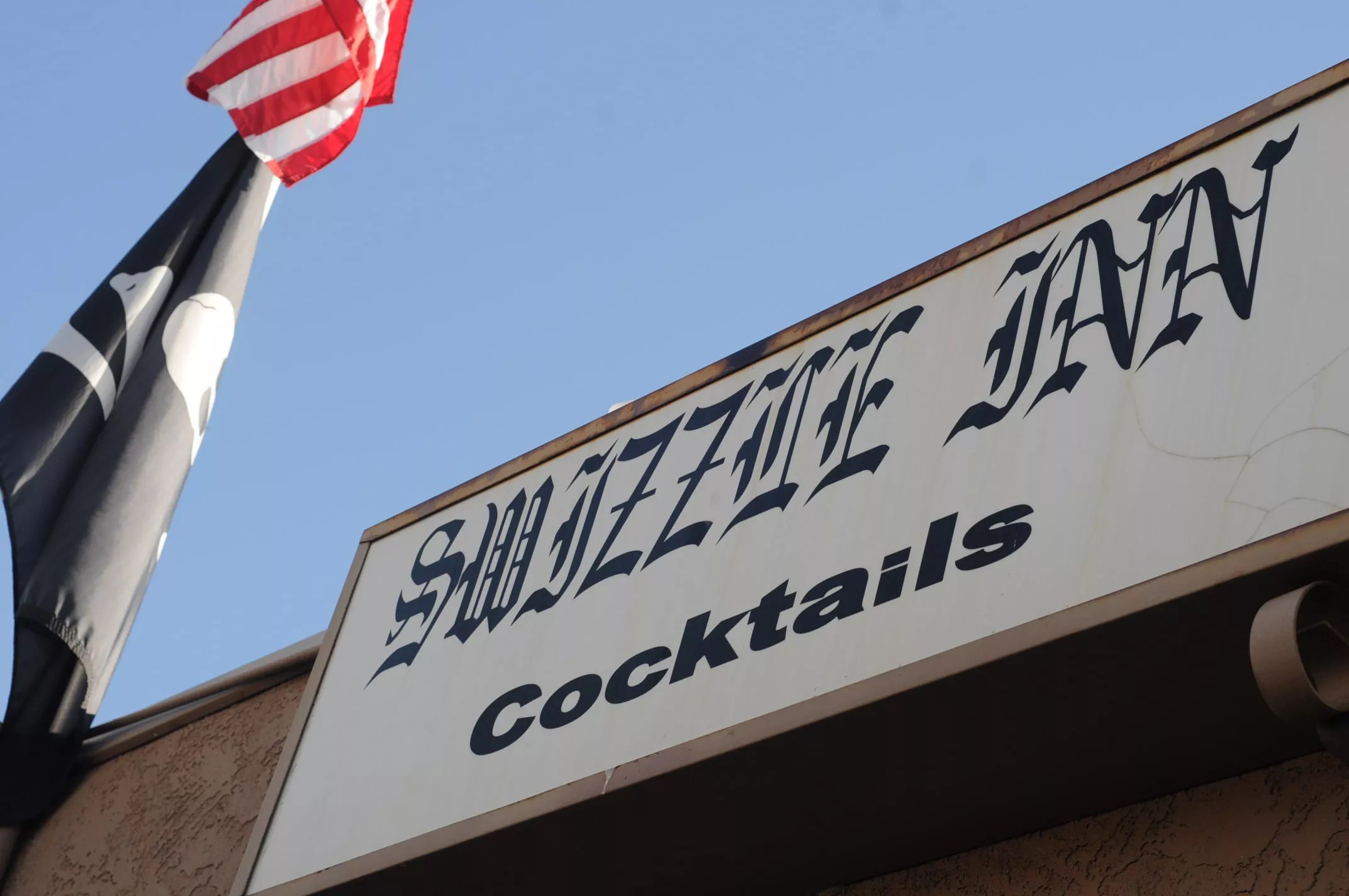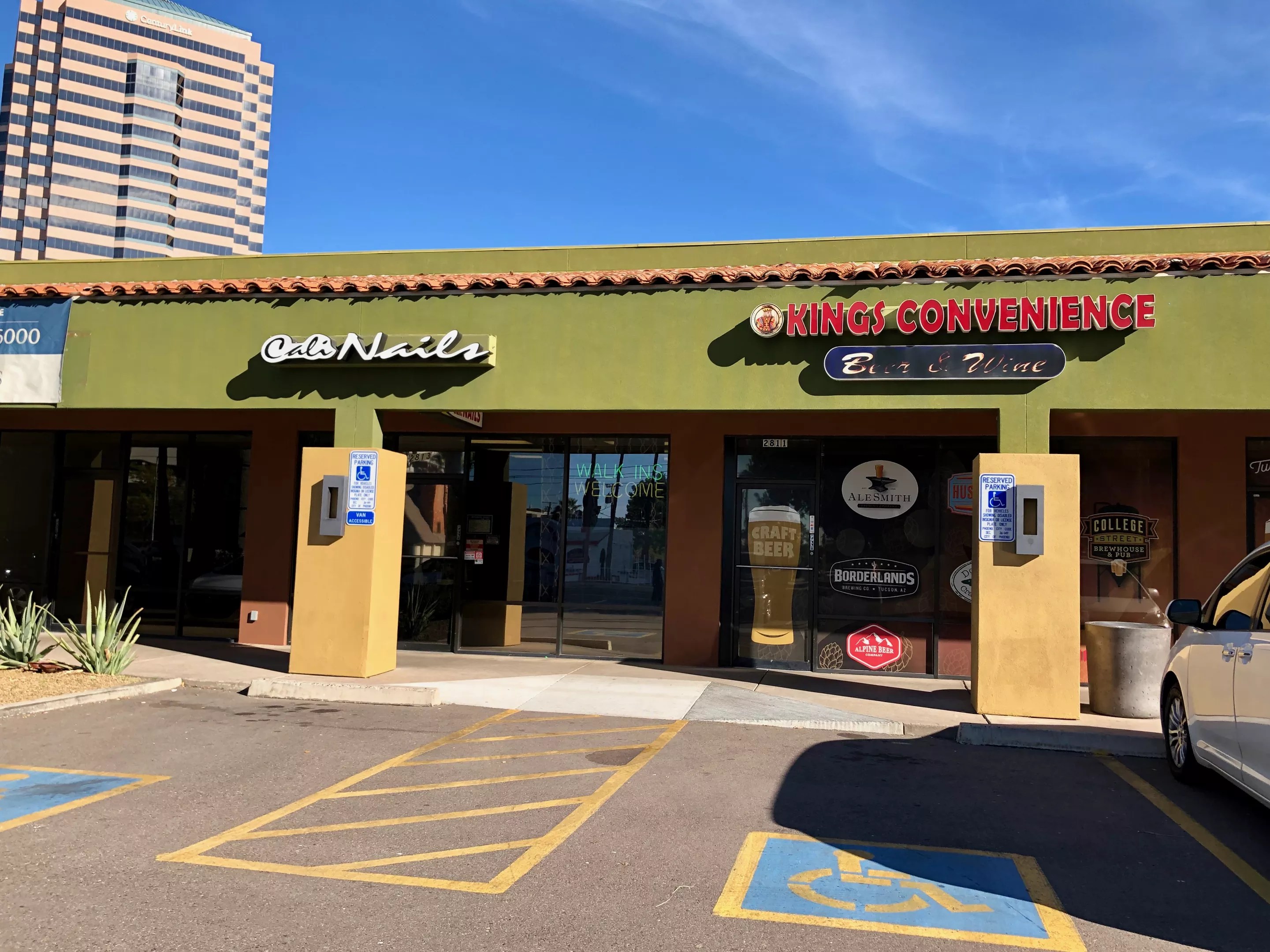
DHS Screenshot

Audio By Carbonatix
On June 29, Arizona Governor Doug Ducey ordered all bars to close once again, starting at 8 p.m. that evening. The new measures were put forth in an effort to limit the spread of COVID-19 as Arizona cases continue to increase.
According to the executive order, bars must pause operations until at least July 27.
Bars are defined as entities holding a series 6 or 7 liquor license from the Arizona Department of Liquor Licenses and Control, meaning their primary business is the sale or dispensing of alcoholic beverages. (A helpful guide to license types can be found here.)
Restaurants, which are allowed to stay open under the new order, carry a series 12 license for food and “all types of spirituous liquor” for on-premises consumption.
A lack of clarity in Ducey’s previous order allowed bars various justifications for staying open, though. The Department of Liquor later clarified that any bar that sold food qualified for reopening, and that food service must be consistent and documented with a menu. Many bars recognized this loophole and ran with it, simply adding food to their offerings even though they weren’t licensed for to serve it.
“We’re fixing it,” Ducey said at Monday’s press conference in response to a question about bars being able to remain open because of the ambiguity from previous orders.
To date, only one bar has been cited by law enforcement for violating these guidelines: Riot House in Old Town Scottsdale. As a result, the nightclub, along with Dierks Bentley’s Whiskey Row and El Hefe, shut down this past weekend in an attempt to deter partiers.
Before Monday’s announcement, a few bar owners shared how they were able to operate in May and June under circumstances in which, confusingly, they were technically not allowed to be open, but their operations were approved by the liquor board.
Here’s how they did it.

The Swizzle Inn.
Benjamin Leatherman
The Swizzle Inn
At The Swizzle Inn in uptown Phoenix, owner Beth Johnson added new items like corn dogs and barbecue pork sandwiches to her bar-friendly menu, which previously only included snacks like chips and jerky. The corn dogs, she says, were a big hit with customers – and received an A grade from the liquor board when it came to visit.
While Johnson says she was initially uncomfortable about reopening and knew that Arizona’s COVID-19 cases had yet to peak, staying closed was no longer an option for her business, which carries a series 6 license.
Johnson, who’s owned the bar for 24 years, took precautions and tried to comply with state regulations best she could. She even shut Swizzle down for five days, from June 6 to June 11, so her employees could be tested for COVID-19. All results came back negative.
“Right now, we’re not in making-money mode, we’re in survival mode,” says Johnson. “We’re paying the rent and paying the utilities, and paying the salaries. That’s where we’re at.”
She hopes other bar owners in town were complying as thoroughly as she was with social distancing and limited capacity while they had the chance.
“If you’re going to do it, do it right and do it right the first time,” she says. “People’s lives are worth more than a bottle of Tito’s.”

Justin Evans (left) owns taprooms in Phoenix and Flagstaff.
Chris Malloy
Hops on Birch
Justin Evans owns The Sleepy Whale in downtown Chandler, The Theodore in downtown Phoenix, The Wandering Tortoise in Arcadia, and Hops on Birch in Flagstaff (and soon, The Golden Pineapple in Tempe). These places opened the first week they were able, in early May, after Evans and his team consulted with their lawyer and insurance representative. The bars carry a series 7 license for beer and wine sales.
Evans’ Phoenix-area taprooms had always allowed customers to bring in their own food. But at Hops on Birch in Flagstaff, Evans got a little more creative. In order to comply with state orders, Evans suggested to his bar manager that he go to Sam’s Club to buy Lunchables to sell in the bar.
“Somebody actually reported us to the liquor board and said we weren’t selling food,” he says. But, “the liquor agent in northern Arizona visited us and said ‘That works.'”

The Kings Beer & Wine
Lauren Cusimano
Kings Beer & Wine
While the Kings Beer & Wine store section remains open for craft beer and wine shoppers, its taproom is now closed. Kings previously sold pre-packaged chips and candy in the taproom and allowed guests to bring in their own food, which technically made it compliant. But owner Mickey Salem ultimately decided that closing the taproom was the right thing to do.
“We were told to be closed when we were getting 200 to 300 cases a day, now we’re looking at 2,000 to 3,000 cases a day, and we [were] allowed to be open?” says Salem of Ducey’s May order. “It doesn’t make sense.”
Physical distancing would be difficult with his bar’s layout anyhow, he says, and the store is helping him pay bills so he doesn’t have to put anyone at risk.
He says he’s heard of bars buying George Foreman grills and making grilled cheese sandwiches in order to comply with the order. He thinks allowing bars to reopen with added food options was “such bullshit.” But he doesn’t judge businesses for doing what they needed to do to stay open and supports those that followed the rules.
“You can look at that business and say, ‘That’s crazy that they’re doing that,’ but it’s also crazy for the consumer,” he says. “You have to make your own decisions. If change is going to be done, it has to be done by the people.”